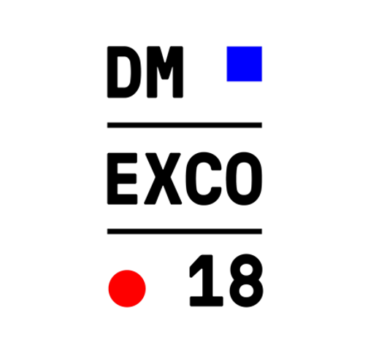The New Technologies Deutsche Bank Believes Will Change Its Marketing
by Lindsay Rowntree on 10th Aug 2018 in News

In association with DMEXCO
Digitalisation, particularly artificial intelligence, is creating an opportunity for a better understanding of the customer and the personalisation of marketing communications. We are moving from one-to-many, to one-to-one communication, creating added value to businesses. Robots have helped free up the analysis burden on consultants in risk management. New technologies are tested first and foremost in the marketing department of Deutsche Bank. In an interview with DMEXCO 2018, expo and conference, Cologne, Germany, Tim Alexander, CMO Deutsche Bank, talks about technology trends and how marketing is evolving into a strategic corporate function.
DMEXCO 2018: With VR, AR, apps and, most recently, artificial intelligence (AI), companies have a cornucopia of new opportunities at their disposal – for both their business and marketing. How do you see this?
Tim Alexander: In the development of products and services, marketing is more necessary today than ever. Marketing incorporates the customer and market view like no other corporate function. Only if something is communicated to the customer, will it get a chance of economic success. Digitalisation is therefore accelerating the evolution of marketing into a strategic corporate function where new technologies are tried out and then made available to the rest of the company.
Which technologies play a role in marketing at Deutsche Bank, and to what extent?
New technologies, like robots, are already relieving the burden on consultants in risk management and routine activities today. This creates more time for demanding activities and for working with the customer. In addition, AI helps to make the processes in the handling and service units, such as complaints management, more effective and efficient. AI, in particular, will help us in marketing to live up to the central promise of digitalisation – specifically highly personalised, and thus value-creating, customer communication across all points of contact.
How does this work in concrete terms?
The basis for this is a better understanding of the customer. AI will help us to see new connections in the needs and behaviours of our customers and will lead us to fundamentally new segmentations of the market, both qualitatively and quantitatively. We can only reach these target groups in real time with a reasonable effort if the creation of the necessary content is also AI-based. In this respect, AI gives marketing a strong push on the path to transformation from one-to-many to maximum one-to-one communication.
To assess technologies correctly, what further training do marketers need today?
In principle, further development is very simple: marketers must always stay curious, think outside the box, and stay on top of the trends. And, above all, they need to constantly communicate with colleagues and employees, with other companies, with pioneers and forward thinkers, to stay in contact and discuss ideas. They need to constantly question themselves. Events like DMEXCO are perfect for this.
How can we prevent technology from being used merely for technology’s sake? And how do we create real added value for marketing and the return on business investment?
We all know: technology can make our lives easier if we let it. But its use must be sensible and must not be forced. We must not lose sight of the goal: we put the customer at the centre of our actions and design advertising as a personalised experience across all points of contact. If technology in general, and artificial intelligence in particular, can support us in this, we should use it. This frees up employee resources, which can be much better used for working on, and with, the customer.
Tim Alexander will speak in the panel 'The Next Mission in Marketing' at DMEXCO on 12 September.
The new DMEXCO sees itself as a community with the Highlight Expo and Conference in September. Through a series of talks, panels, and seminars during the conference, delegates will have the opportunity to learn through case studies and thought leadership from a number of high-profile speakers. The German Digital Industry Association (BVDW) will lead visitors in 21 guided tours on specific topics such as marketing automation, content marketing and storytelling, or data protection and e-privacy. Get your ticket!
AdvertiserdmexcoMarketerMartech








Follow ExchangeWire